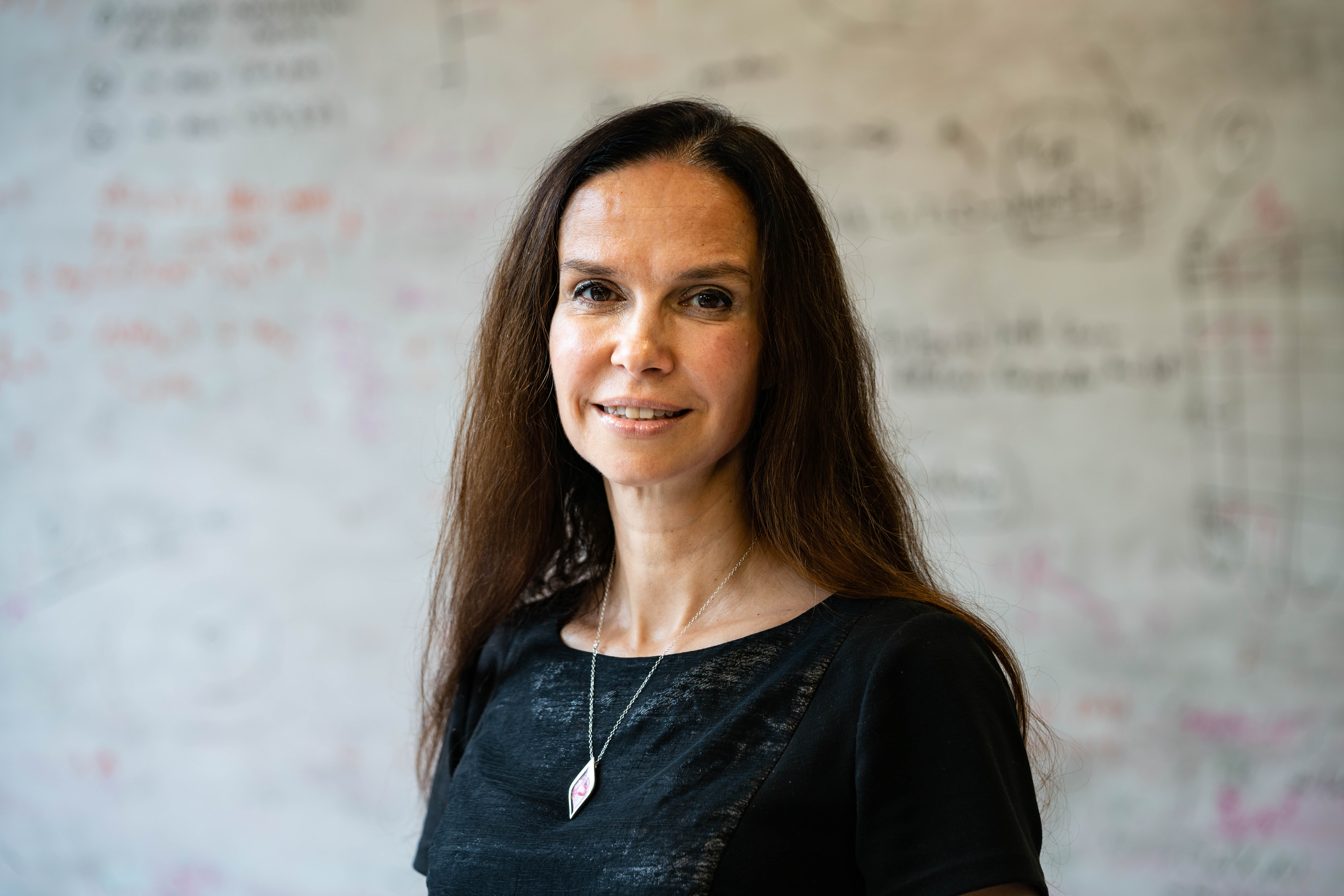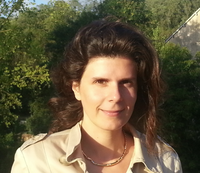Keynote Speakers
Title: Revisiting Wireless Security
Professor Muriel Médard, Cecil H. Green Professor of EECS, Massachusetts Institute of Technology
Abstract
Wireless security has progressed from an area of specialized interest to a matter of discussion in the mainstream press. The attention the issue receives is in great part due to the increased societal reliance on wireless connectivity, be it by the advent of 5G, or by the heavy use of WiFi for remote work in the last couple of years. On the technical side, the confluence of multiple factors has made the topic increasingly complex. First, the heterogeneity of manufacturers and technologies, ranging from traditional mobile systems to WiFi and satellite, render a centrally orchestrated security solution impractical. Second, the introduction of new technologies, particularly at very high frequencies, present new settings in terms of propagation and associate vulnerabilities. Third, traditional wiretap approaches are not robust to recent security analysis based on guessing attacks. Fourth, the erosion of traditional cryptographic schemes, such as RSA, by quantum computing, coupled with the rise of the possibility of such quantum computation, imply that reliance on traditional data hiding is increasingly fraught. Finally, the widespread use of federated learning entails that a highly connected, omnipresent wireless ecosystem also presents new and complex risks in terms of privacy.
In this talk, we argue that the many of the above developments can, when exploited well, be seen not as vulnerabilities but as techniques to enhance security. Heterogeneous settings permit, through network coding, light-weight, in terms of computational and rate overhead, post-quantum secure operation of networks without central coordination. Leveraging these post-quantum schemes, transmissions at high frequencies can be fashioned to obtain absolute security, which does not rely on statistical notions of signal to noise ratios as in conventional wiretap schemes. Guessing random additive noise decoding (GRAND™) provides the ability to incorporate encryption into error-correcting coding directly. Privacy management even in distributed, uncertain settings, can be enhanced by combining machine learning techniques with coding.
Work supported by DARPA, NSF, ONR, MIT Lincoln Lab, the Wellcome Foundation, MIT Jameel Clinic and MIT Fintech.
Bio
Muriel Médard is the Cecil H. and Ida Green Professor in the Electrical Engineering and Computer Science (EECS) Department at MIT, where she leads the Network Coding and Reliable Communications Group in the Research Laboratory for Electronics at MIT. She obtained three Bachelors degrees (EECS 1989, Mathematics 1989 and Humanities 1991), as well as her M.S. (1991) and Sc.D (1995), all from MIT. She is a Member of the US National Academy of Engineering (elected 2020), a Fellow of the US National Academy of Inventors (elected 2018), American Academy of Arts and Sciences (elected 2021), and a Fellow of the Institute of Electrical and Electronics Engineers (elected 2008). She holds Honorary Doctorates from the Technical University of Munich (2020) and from The University of Aalborg (2022).
She was co-winner of the MIT 2004 Harold E. Egerton Faculty Achievement Award and was named a Gilbreth Lecturer by the US National Academy of Engineering in 2007. She received the 2017 IEEE Communications Society Edwin Howard Armstrong Achievement Award and the 2016 IEEE Vehicular Technology James Evans Avant Garde Award. She received the 2019 Best Paper award for IEEE Transactions on Network Science and Engineering, the 2018 ACM SIGCOMM Test of Time Paper Award, the 2009 IEEE Communication Society and Information Theory Society Joint Paper Award, the 2009 William R. Bennett Prize in the Field of Communications Networking, the 2002 IEEE Leon K. Kirchmayer Prize Paper Award, as well as eight conference paper awards. Most of her prize papers are co-authored with students from her group.
She has served as technical program committee co-chair of ISIT (twice), CoNext, WiOpt, WCNC and of many workshops. She has chaired the IEEE Medals committee, and served as member and chair of many committees, including as inaugural chair of the Millie Dresselhaus Medal. She was Editor in Chief of the IEEE Journal on Selected Areas in Communications and has served as editor or guest editor of many IEEE publications, including the IEEE Transactions on Information Theory, the IEEE Journal of Lightwave Technology, and the IEEE Transactions on Information Forensics and Security. She was a member of the inaugural steering committees for the IEEE Transactions on Network Science and for the IEEE Journal on Selected Areas in Information Theory.She currently serves as the Editor-in-Chief of the IEEE Transactions on Information Theory. Muriel was elected president of the IEEE Information Theory Society in 2012, and serves on its board of governors, having previously served for eleven years.
Muriel received the inaugural 2013 MIT EECS Graduate Student Association Mentor Award, voted by the students. She set up the Women in the Information Theory Society (WithITS) and Information Theory Society Mentoring Program, for which she was recognized with the 2017 Aaron Wyner Distinguished Service Award. She served as undergraduate Faculty in Residence for seven years in two MIT dormitories (2002–2007). She was elected by the faculty and served as member and later chair of the MIT Faculty Committee on Student Life and as inaugural chair of the MIT Faculty Committee on Campus Planning. She was chair of the Institute Committee on Student Life. She was recognized as a Siemens Outstanding Mentor (2004) for her work with High School students. She serves on the Board of Trustees since 2015 of the International School of Boston, for which she is treasurer.
She has over sixty US and international patents awarded, the vast majority of which have been licensed or acquired. For technology transfer, she has co-founded CodeOn, for which she consults, and Steinwurf, for which she is Chief Scientist. Muriel has supervised over 40 master students, over 20 doctoral students and over 25 postdoctoral fellows.

Title: Multi-modal sensing and scene understanding in emergency scenarios
Professor Niki Trigoni, Oxford University
Abstract
UK Emergency situations present some of the most challenging and unusual scenarios for sensing and scene understanding; yet, it is in these situations, where situation awareness is of paramount importance and where technology is needed the most to help protect human lives. In this talk, I will present some of the key challenges faced by sensing and machine learning algorithms in emergency situations, including lack of pre-installed sensing infrastructure, lack of training data, sensor failure, and limited visibility and connectivity. I will then present recent research directions that we have pursued to address these challenges including multi-modal sensing, cross modality training and human-robot interaction.
Bio
Niki Trigoni is Professor at the Oxford Department of Computer Science, heading the Cyber Physical Systems Group. Her interests lie in the tight integration of sensing and machine intelligence for context inference, control and human-machine interaction. She has applied her work to a number of application scenarios, including mobile autonomy, asset monitoring, and localisation systems for emergency situations, as well as workforce safety and efficiency. Trigoni has founded and served from 2014-2019 as Director of the Centre for Doctoral Training on Autonomous and Intelligent Machines and Systems. Driven by her passion for research translation, in 2015, she founded Navenio Ltd, a deep tech Oxford spinout on infrastructure free indoor positioning, and a 2020 KPMB Best British Tech Pioneer. In 2022, she won the CTO of the Year award at the UK's Women in IT Awards, demonstrating impact from translating positioning tech to improve efficiency in the healthcare sector.

IMPORTANT DATES
Regular & Work inProgress Papers
Paper due:
December 15, 2021
January 15, 2022
Acceptance notification:
February 20, 2022
March 7, 2022
Camera-ready version:
April 15, 2022
Workshops (Proposal)
Proposals due:
October 25, 2021
Acceptance notifications:
November 5, 2021
Postgraduate Forum
